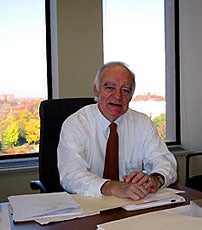I’m delighted to announce that CogZest, our primary CogSci Apps affiliate (from which CogSci Apps Corp. was spun off in 2014), is launching the Productive Consciousness podcast. This is supremely relevant to Hookmark because Hookmark Extends and Accelerates Your Consciousness: In accordance with Merlin Donald’s Theory of Consciousness.
The first Productive Consciousness podcast guest will be Merlin Donald, author of the most compelling theory of consciousness in the cognitive science literature.
About Merlin Donald
From Wikipedia:
Merlin Wilfred Donald (born November 17, 1939) is a Canadian psychologist, neuroanthropologist, and cognitive neuroscientist,[1] at Case Western Reserve University. He is noted for the position that evolutionary processes need to be considered in determining how the mind deals with symbolic information and language. In particular, he suggests that explicit, algorithmic processes (the computational theory of mind) may be inadequate to understanding how the mind works.[2]
From Merlin Donald | Department of Psychology:
Merlin Donald is a Emeritus Professor in the Department of Psychology and Faculty of Education, Queen’s University, Kingston, Ontario, Canada. A cognitive neuroscientist with a background in philosophy, he is the author of many scientific papers, and two influential books: Origins of the Modern Mind: Three stages in the evolution of culture and cognition (Harvard, 1991), and A Mind So Rare: The evolution of human consciousness (Norton, 2001).
His PhD was obtained from McGill in 1968, and subsequently he spent two years at the School of Medicine, Yale University, as an NRC Post-Doctoral Fellow, followed by almost three years at the West Haven Veterans Administration Medical Center as a Research Neuropsychologist. He has been at Queen’s University since 1972. He has also been a visiting professor at University College, London (three times), Harvard, Stanford, the University of California at San Diego, and elsewhere. He has also been a Visitor at the Center for Advanced Studies in the Behavioural Sciences, at Stanford, California. He was awarded a Killam Research Fellowship from 1994 to 1996, and is a Fellow of the Canadian Psychological Association (1984), and the Royal Society of Canada (1995).
Most of Dr. Donald’s early empirical work was in the field of human cognitive and clinical neuroscience, with a specialization in electrophysiology. During the past 15 years he has returned to the topic that drew him to psychology in the first place: human intellectual and cognitive origins. This work bridges several disciplines in the sciences, social sciences and humanities. His central thesis is that human beings have evolved a completely novel cognitive strategy: brain-culture symbiosis. As a consequence, the human brain cannot realize its design potential unless it is immersed in a distributed communication network, that is, a culture, during its development. The human brain is, quite literally, specifically adapted for functioning in a complex symbolic culture.
Where would these complex communication networks have come from in the first place, if they were largely absent in our ancestors, the Miocene apes? This question was first addressed in his first book, Origins of the Modern Mind: Three stages in the evolution of culture and cognition, published by Harvard University Press in 1991. The central thesis of that work was that symbolic thought and language were ultimately products of changes in the primate executive brain, rather than of a specific language “chip.” These changes expanded some basic attentional, metacognitive, and retrieval capacities that were nascent in primates, and highly evolved in hominids. These capacities were crucial in meeting the adaptive challenges of increasing social complexity, with an associated need for very rapid learning and an optimally flexible epigenetic strategy. This idea was further developed in a series of papers and in a book entitled A mind so rare: The evolution of human consciousness (W. W. Norton, April, 2001).
Dr. Donald is currently trying to understand how the slow-moving biology of the brain can deal with the changing cognitive ecology. Humanity is greatly concerned about changes in the physical ecology, but has largely ignored equally massive changes in the cognitive ecology, even though the latter will probably set our future direction as a species.
Stay tuned!
